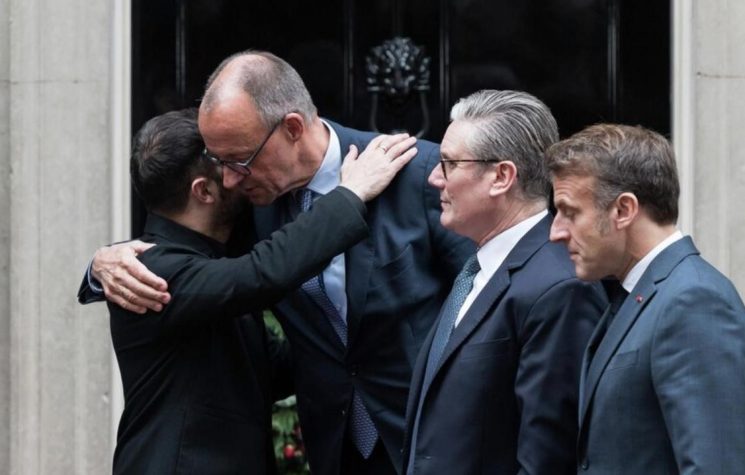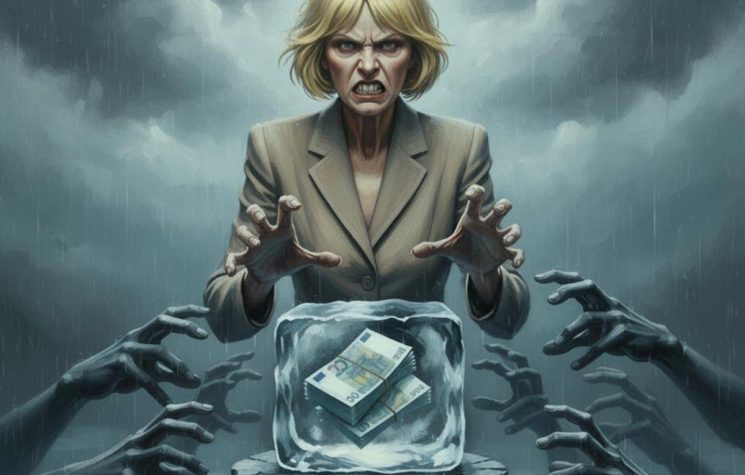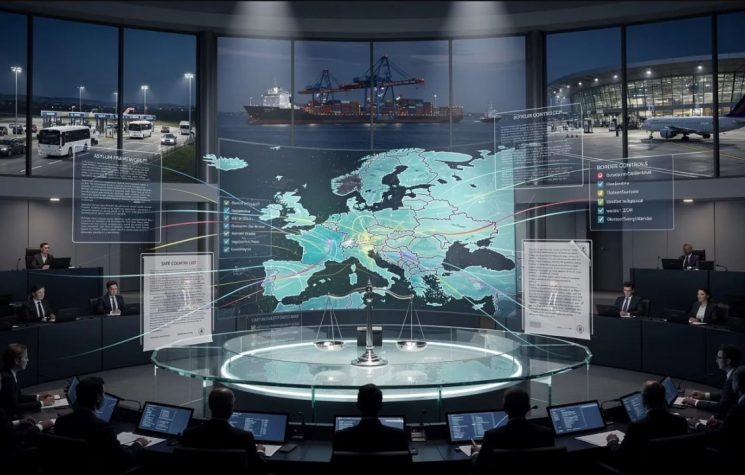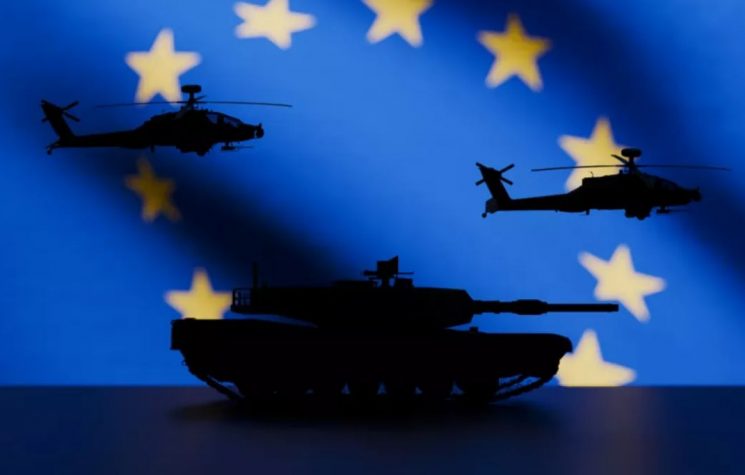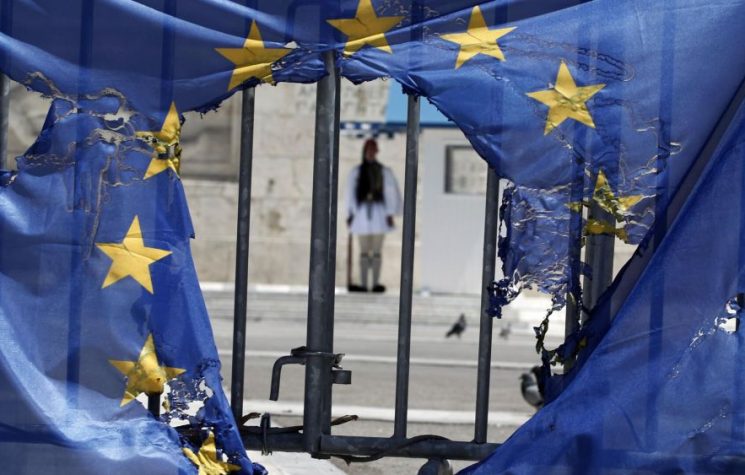Russia’s immobilised assets will stay immobilised until the end of the war in one way or another.
Join us on Telegram![]() , Twitter
, Twitter![]() , and VK
, and VK![]() .
.
Contact us: info@strategic-culture.su
If you want the best description of why Europe will struggle to finalise agreement to lend Ukraine $140bn using immobilised Russian assets held in Belgium’s Euroclear, then you should watch the presentation recently given by Belgium’s Prime Minister, Bart de Wever. He spoke at the end of a European Council meeting in which agreement was once more not reached on such a loan.
This matter has now dragged on for approaching eighteen months, with the European Commission trying unsuccessfully to forge consensus on the loan. In fact, many western politicians, notably Poland’s hawkish Foreign Minister Radek Sikorski, not to mention media pundits, have been calling for those assets to be given to Ukraine in their entirety, in the form of capital, which seems even less likely to be agreed.
De Wever set out three key challenges to agreeing this loan.
Legality
De Wever said, ‘if it looks like confiscation, and smells like confiscation and talks like confiscation, maybe you could call it a sort of confiscation,’ and that, the legality issue needs to be resolved ‘before we can go forward with this.’
Referring to Russia’s immobilised assets as a chicken, he makes the case that it is questionable whether starting to eat the chicken by using it to back loans, is legal, and that no clear-cut legal assurances have been provided on this. Japan has so far refused to use frozen Russian assets it holds, on the basis of their assertion that Central Bank money is immune. ‘Even during the Second World War, this did not happen.’
While the loan is being framed as European, Belgium is singularly exposed to its legal consequences. ‘We will.. be buried in litigation. I don’t think Russia will take this in a nice way.’
Belgium – not Europe – would face arbitration on the basis that the Belgo-Luxembourg Investment Treatment governs the management of investments between Russia and Belgium. He pointed out that Luxembourg is already subject to arbitration in respect of the assets of businessman Mikhail Fridman, valued at $8bn, with a claim for $16bn including damages. He pointed out that if Belgium allowed the use of $140bn in Russian assets, an arbitration could result in a payout of double that, if damages were awarded.
Belgium is now the sole country, apart from possibly Hungary, holding up agreement on this, for this important reason.
Commentators keen to use the Russian money are also too cavalier in their assessment of the risk. Pointing to a journalist’s suggestion that ‘for Putin this money has already been written off.’ De Wever remarked. ‘I do not have that impression. This is not exactly what we hear from Moscow.’
He feared, not only that Belgium would be subject to a wave litigation, but also other possible counter-measures, including ‘counter-confiscations of western monies frozen in Russia and confiscation of western-owned companies’.
‘A legal basis is not a luxury, it is not a detail.’ If you lose that litigation it could become very costly.
Liability
The second challenge he outlined, which he considered to be of greater importance, was of liability to repay, should circumstances arise in which Russia’s assets were re-mobilised, for whatever reason. He said that a court might rule in favour of Russia in an arbitration, or that sanctions might be lifted. Pointing to Trump’s 12-point peace plan for Ukraine, he claimed that money might have to return to Russia, before Russia paid Ukraine any agreed reparations. Yet, ‘if you give the money to Ukraine then the cash is gone.’
European Central Bank Chairman, Christine Lagarde, who was at the Council Meeting and subsequent dinner advised that any repayment to Russia would therefore need to be ‘guaranteed’, specifically, if circumstances arose in which Russia’s assets were mobilised and had to be returned immediately.
With global markets watching, not repaying Russia would undermine trust in Euroclear. ‘Euroclear holds Trillions of Euros in reserve. If there is a breach in the trust of the financial system, there will be very heavy consequences for our financial system, and even for the Eurozone.’
De Wever said, ‘I’m not able, certainly not willing, in a week’s time to pay $140bn out of Belgium’s rich and full pockets.’
Belgium therefore understandably wants every Eurozone Member State to guarantee to cover a percentage of any monies owed to Russia, so that Belgium is not exposed to the full sum. And that, according to Christine Lagarde these ‘guarantees have to be there, they have to be concrete and they have to be immediate.’ Yet he pointed out that, ‘this question was not answered with a tsunami of enthusiasm around the table.’
Sardonically, he suggested that European leaders were worried about their obligation to explain to their parliament’s that they had signed off on repaying Russia. And therein, another fundamental challenge. Even if they wanted to, and I suspect most don’t, few Member States would be able to advance tens of billions of dollars to Russia at a moment’s notice. Definitely not France, or Italy or Spain, the request would likely torpedo Donald Tusk’s embattled government in Poland, and the Balts are too small to pay a great deal anyway.
And De Wever goes on to say, that if the money ‘is not from the Member States, where will this money come from? I do not have an answer to this question. And I did not receive an answer to this question.’
Solidarity
The final point De Wever made, which he suggested came from Lagarde, was that, to reduce risk to the Eurozone, and if ‘you want the world to perceive it as a legitimate operate, then good if you do not do it alone.’
Six other countries in the Eurozone hold immobilised Russian assets but have never given any transparency on how much money they have, how much windfall profit or tax income they gain from that money. With immobilised assets held outside of Europe, in Sterling, Yen, Swiss Francs and Dollars, Belgium may account for less than half of the global total. Yet, ‘Euroclear is the only financial institution in the world that is implicated in the solidarity for Ukraine.’
He did not give the impression that any other country was willing to expose itself to the legal risk and potential liability of using immobilised assets in their jurisdictions to back support for Ukraine.
Clearly, Ukraine has almost run out of money, and when I say money, I mean western money, as it does not have sufficient resources to fight on its own. And a solution is needed by the end of the year, if the Europeans are determined to help Zelensky to fight on, rather than suing for peace.
Zelensky clearly wants to fight a losing war and wants the money from Europe to do so. Yet, it remains far from clear that Belgium will be moved on the loan issue, unless other European states expose themselves to the same risks, which currently appears unlikely.
In concluding, De Wever said, ‘if you find solutions for these three problems. Then maybe we can go ahead. If not, maybe another option can be put on the table to get the financing of Ukraine on track.’
It is abundantly clear that there isn’t a plan B. Because the whole ruse of setting up this questionable loan, backed by immobilised Russian assets, was to prevent European States from having to pay from their own pockets. Bart Wever has given European leaders a cold shower and told them to put their money where their mouths are, and now many are quibbling and calling him the ‘bad boy’.
Either way, Russia’s immobilised assets will stay immobilised until the end of the war in one way or another, according to De Wever. Despite the three sets of risks that Europe faces in organising this proposed loan to Ukraine, one things appears abundantly clear; that it will embolden Russia to continue to fight on.
And while all these conversations have been unfolding, the Economist has just published an article, suggesting that Europe should in fact pay $390bn to help Ukraine sustain the fight for another five years. Given everything above, the Economist does not make clear how this would be funded. Having told its readers since the war started that Russia’s economy may implode at any moment, it now suggests it could in fact take several more years, and that Zelensky therefore needs even more money. Unable to secure even $140bn, the Economist confidently advances the idea that a considerably larger donation should be a simple matter, using European taxpayers’ money. Idiotic ideas, it seems, are not only limited to Brussels.


















